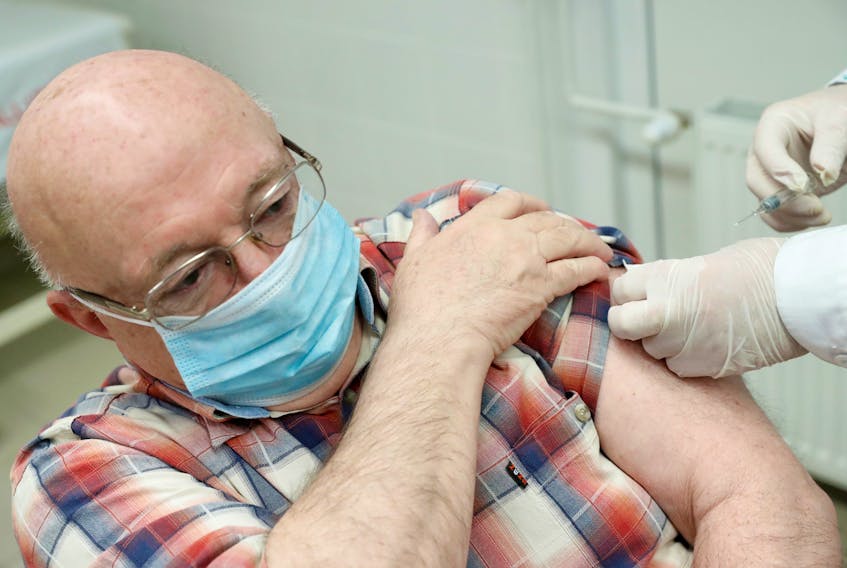BUDAPEST (Reuters) - Hungary is adjusting its COVID-19 vaccination drive to give as many first shots as possible in the face of fast-spreading infections, widening immunisation by providing at least some protection to recipients, authorities said on Monday.
Announcing the initiative, Surgeon General Cecilia Muller said she expected new coronavirus cases to surge in the coming weeks, and so Hungary would try to stretch supplies by extending the period between the two jabs, while maintaining safety.
"Data show exponential growth (in infection)," Muller told an online press briefing. "The coming weeks will be very difficult."
The central European country of 10 million surpassed 15,000 deaths from coronavirus at the weekend, a death rate roughly on par with that seen in the United States. Hungarians who have fallen sick with the disease so far now number 432,925.
Hungary is the first country in the European Union to authorise and use vaccines from Russia and China, causing unease among Western peers but contributing to a rapid rise in vaccinations as supplies now come from five manufacturers.
Western procurement has also increased, with Hungary upping its order of Pfizer-BioNTech vaccines to 10.87 million from an earlier order of 6.5 million, Muller said.
The country also has orders from Moderna and AstraZeneca and expects to order supplies of the single-dose Johnson & Johnson vaccine once it becomes available in the EU, Muller said.
The new approach to vaccination means a 12-week gap between AstraZeneca shots and 35 days between Pfizer shots, she said.
Authorities had detected a rising concentration of the virus in wastewater nationwide, with the capital Budapest especially exposed, which might necessitate further restrictions if vaccination efforts fail to curb the pandemic, she added.
That might include a closure of elementary schools, she said. Hungary has kept secondary schools and universities closed since November, and banned public gatherings, while limiting restaurants to take-out and closing hotels.
(Reporting by Marton Dunai and Anita Komuves, Editing by William Maclean)









